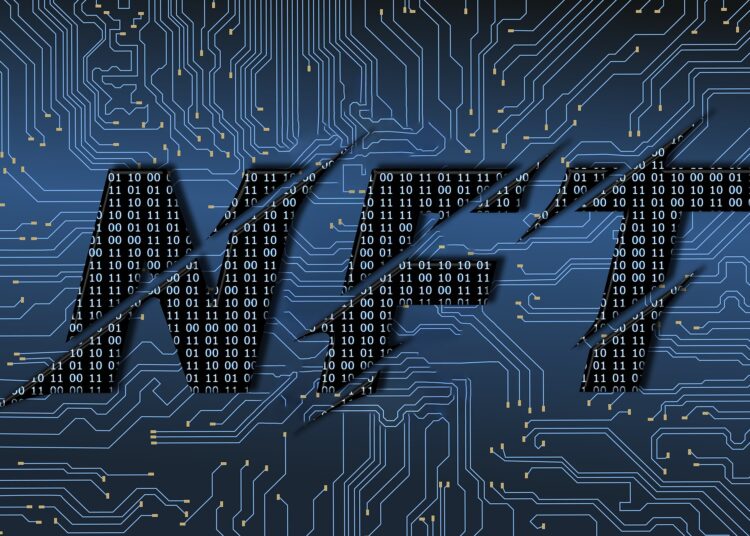- Wakweli and Polygon collaborate to ensure NFT project holders request authenticity certificates.
- Polygon recently sealed another partner with Immutable.
Web3 infrastructure protocol Wakweli and Polygon platform has announced a partnership deal to ensure that all digital assets on the network would be compatible with the certification system developed by Wakweli. The partnership demands that all NFT project holders on the chain would be able to request authenticity certificates for each asset.
According to Antoine Sarraute, co-Founder of Wakweli, Polygon has established itself as the home of incredible NFT projects.
Since 2021 when ETH fees skyrocketed, Polygon established itself as the go-to chain to mint assets and has performed extremely well ever since – it is now the home of incredible NFT projects. We built Wakweli to create a safer web3 space across all chains, and today we are thrilled to collaborate with Polygon. This will enable Wakweli’s certification power to all Polygon users and unlock a definitive way to fight scams attempts, creating more trust in this thriving ecosystem.
The report further discloses that the advanced use-case scenarios would be available for developers through the Wakweli platform and API. This includes automatic certification requests upon minting or accessing even more precise certification data. Developers and project holders would have support and also seek to work for a more secure digital ecosystem with all Polygon collaboration.
Wakweli operates as an NFT certification protocol based on Proof of Democracy (PoD) decentralized consensus algorithm. In its first funding round in 2023, Wakweli raised $1.1 million.
Polygon Labs also seeks to make available scalable, affordable, secure, and sustainable blockchain infrastructure for Web3 by engaging with other ecosystem developers. The network has developed several protocols for developers to access major scaling solutions which include “layer 2s (zero-knowledge rollups and optimistic rollups), sidechains, hybrid chains, app-specific chains, enterprise chains, and data availability protocols.”
Polygon network records thousands of DApps
The scaling solution initially developed has been adopted by tens of thousands of decentralized applications. The network has recorded unique addresses of over 211 million with smart contracts of 1.12 million created. Since its inception, about 2.36 billion total transactions have been processed.
The existing Polygon network is home for some of the biggest Web3 projects, such as Aave, Uniswap, and OpenSea, and well-known enterprises, including Robinhood, Stripe and Adobe. Polygon Labs is carbon neutral with the goal of leading Web3 in becoming carbon negative.
Recently, Polygon and Immutable announced a partnership to build a gaming blockchain using zero-knowledge technology. According to the report, the plan is to accelerate decentralized game development and improve the web3 mass adoption.
Ryan Wyatt, President of Polygon Labs stated that the partnership is a step forward in its mission to empower developers.
Partnering with Immutable is a monumental step forward in our mission to empower developers and enable users to truly own their in-game assets. By leveraging Immutable’s top world-class gaming platform, game development becomes seamless, allowing for the creation of rich and unique gaming experiences.
No spam, no lies, only insights. You can unsubscribe at any time.
Some of the popular gaming blockchains and publishers including Ubisoft, Atari, Animoca, Decentraland, Somnium Space, and The Sandbox are reportedly building on Polygon.
Crypto News Flash does not endorse and is not responsible for or liable for any content, accuracy, quality, advertising, products, or other materials on this page. Readers should do their own research before taking any actions related to cryptocurrencies. Crypto News Flash is not responsible, directly or indirectly, for any damage or loss caused or alleged to be caused by or in connection with the use of or reliance on any content, goods, or services mentioned.
Credit: Source link




![Best Crypto to Buy This Week: Qubetics, Cardano, Litecoin, Terra Classic, and Aptos [Updated List]](https://cryptospiel.com/wp-content/uploads/2025/01/AD_4nXeGd9nnWmlaga7BJwZr_W5xMuwABg2YsR1gEM4HWqaNfNxMICiE2CcrY0R9sjslWh4jGEtN6469baEwZdvUaKuIH5wFjpO_IbQx4RP0Zr99DRTOSdVpvDKmk6Zv0k8iqz5ZCEN7eA-350x90.png)







































